
Old Boy Lachlan Stuart (2004-08) has returned to TGS for a special Year 12 Assembly, motivating our Year 12 students before their G150 Gift Run.
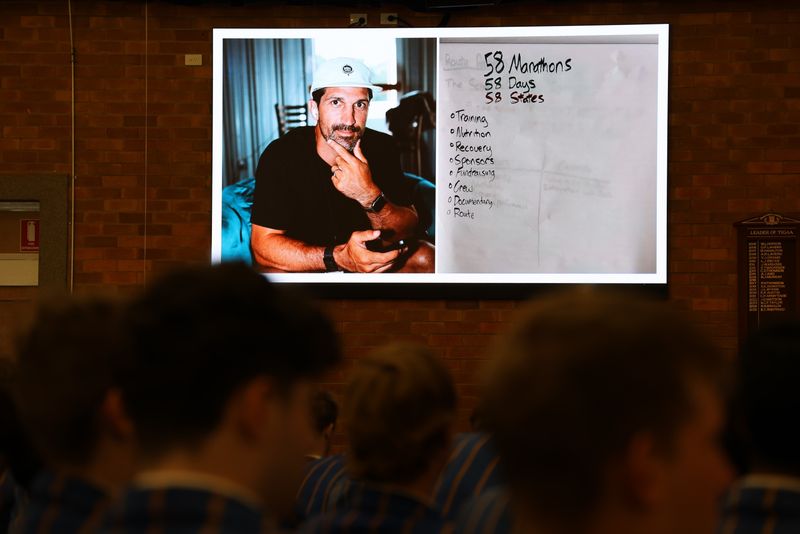
Mr Stuart will return to TGS again for the event held on Wednesday, 28 May to support the Year 12's significant fundraising G150 Gift Run event.
The boys are running 1500km in a relay format to honour a 1968 TGS Interact Club fundraising project that will help upgrade the original School gates on Herries Street, along with raising funds for the Nerve Connection Foundation.
Lachalan Stuart shot to international fame for his inspiring 58-2-58 project earlier this year. He ran a marathon in 58 different states of the USA and Australia in 58 days, raising funds and awareness for mental health. He is proud to be supporting this TGS marathon relay and shares his motivation here:
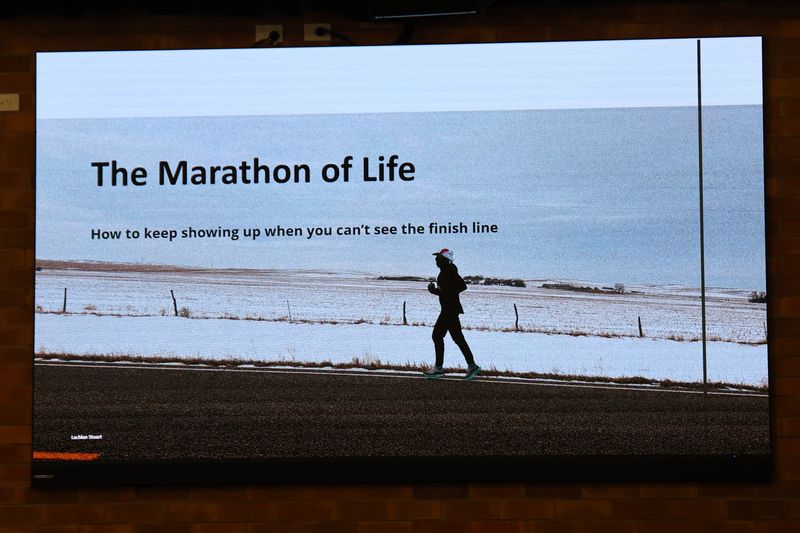
How did you recover after the 58-2-58 marathon? My coach had me running two hours a day for the first week after I finished and then tapering down from there. It was frustrating because I was ready to stop, but at the same time, it was good for my head to keep moving a little bit and reflect on everything I’d just done.
How did you deal with so much travel while running such huge distances every day? I had a great team. Obviously, waking up in a different place every day means you don’t have your usual comforts. We had to find water, figure out a route to run, etc., but that ended up becoming a routine in itself. When I hit a rough patch mentally or was injured, the team stepped up and made sure I kept moving so we could stay on track. It was definitely challenging, especially looking outside when it’s snowing and minus 20 degrees, the last thing you want to do is run. But we got it done.
How did you stay motivated through fatigue, injury and other challenges? The goal meant everything. I had personal reasons - just wanting to see what I was truly capable of. I’ve always pushed myself in sport and when I tied that to a bigger purpose - raising awareness for mental health - it gave me another level of drive. When I was struggling, I’d think about the people watching my story, the messages I was getting. I couldn’t quit knowing that others were looking to me for inspiration. That helped me keep going, especially when things got really tough.
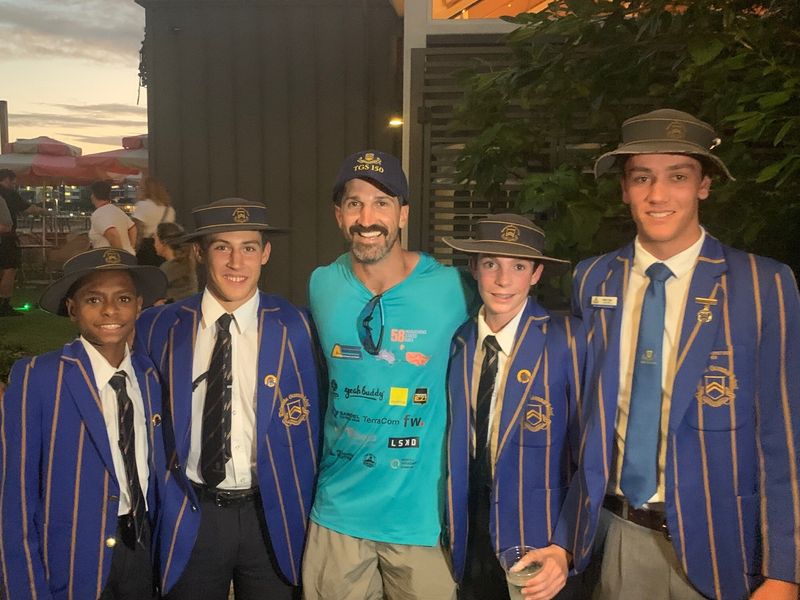
What was the highlight of the journey? Seeing my wife when I crossed the finish line, that was a breath of fresh air after nearly three months living with my mates. But honestly, even living with them was a highlight. Being on an adventure like that together, sharing those experiences, it's something most people will never get to do. No one can take that away, and just thinking about it makes me smile.
Do you realise how much of an inspiration you’ve been to others? I don’t think I fully do. One of the most humbling moments was receiving a message from Toowoomba Grammar School. I’m proud to be a TGS Old Boy, and to know I’ve had an impact on the staff and students, it meant the world. Back when I was at School, I always wanted to be successful, but I didn’t know what that would look like. So, to have some small impact on the boys there now, that brought tears to my eyes. Seeing some of the current students and Mr Kefford at the finish line cheering me on, that was one of the most special moments. People influence your life long before you realise it. Some of my TGS teachers, Mr John Anderson, Mr Mark Oliphant, Mr Lance Treloar and Mr Matthew Harrison in particular helped shape who I am. Even when I was in trouble. I didn’t get it at the time, but now I’m very grateful for their guidance. Mr Oliphant always wanted me to run cross country and I was so rebellious, I used to say “never!” Definitely a few regrets there. But you live and learn.

What was your favourite place during the run? That’s tough, there were so many beautiful spots. But Greenville, South Carolina stands out. After 32 straight days of sub-zero temps and snow, Greenville was the first day with warmer weather. It was such a welcoming town with a waterfall right in the middle, it felt like an oasis. I think about that place a lot.
What were you thinking about while running? Most of the time I ran without music, so there was a lot of thinking. For me, it became about life. Running gave me space to be who I really wanted to be and to reflect on what success and being a good person looks like to me now - as a husband, a friend. Before, I was always chasing business goals. But this made me stop and really take in the people we were meeting, the places we were seeing and just be present. Some days, I’d be hard on myself mentally, because there was so much time alone with my thoughts. But I wanted that. I wanted to understand myself better.
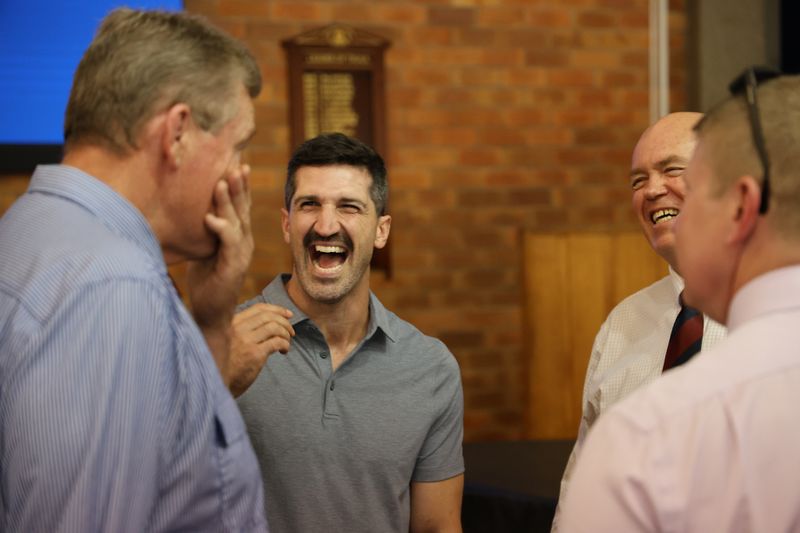
Do you feel like that process helped? Absolutely. I used to put so much pressure on myself to be someone or have certain things. Now I realise the most important things are my family and friends. This experience made me want to spend more time investing in those relationships. I now understand that career and money isn’t what life is all about, whereas before, that was all I thought about. So that was a huge shift.
Did you meet anyone along the way who inspired you? Without a doubt - hundreds of people. Every town we passed through, someone would run with me. It was never about how far they went, it was the effort. I got to hear so many stories about what people had overcome or were still going through, and how my journey inspired them. Focusing on their stories and what they wanted to achieve helped me push through my own pain. It reminded me we should never compare ourselves to others. We’ll never measure up if we do. Just be proud of your own effort.
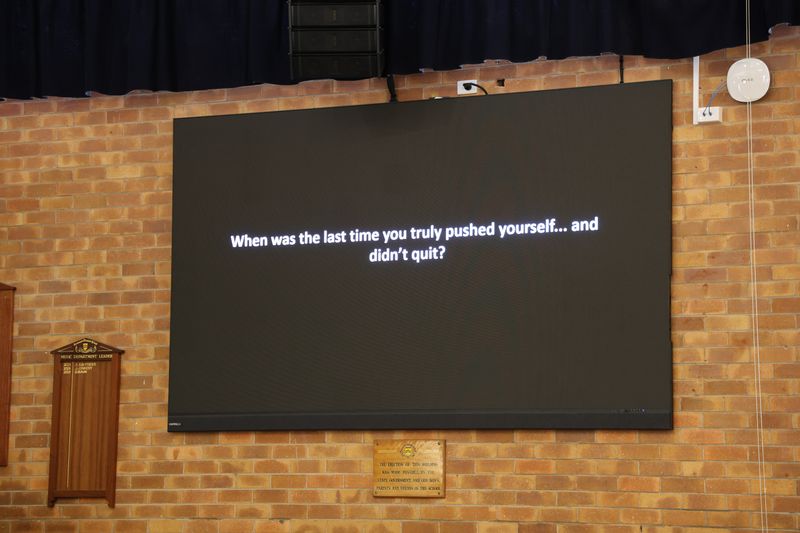
How did you develop that mindset? I’ve always been a decent athlete. After TGS, I played rugby overseas, but I constantly felt like I wasn’t enough. Eventually, I had a fall from grace, I struggled with addiction, mental health issues and suicidal thoughts. Getting through that was when I realised I needed to focus on my journey, not anyone else’s. I’m still not perfect at it, but I try. These days, if I can say “I gave my wife my best today” or “I gave my health my best,” then I can go to bed proud.
What was harder—overcoming addiction or completing this run? Definitely overcoming the addiction. 2013 was rock bottom; I had to look in the mirror and admit I didn’t like the person I saw. That was brutal. I’d hurt people and had to own up to that. But once I started taking responsibility, apologising, rebuilding, then slowly I started to gain confidence. It took about four years to get through that, and then I started The Man That Can Project. The run, as tough as it was, was a much easier place to be because I was proud of myself.
What is The Man That Can Project? It’s a men’s performance and coaching business. We help men figure out what success means to them and support them in becoming the best version of themselves. We run workshops, offer coaching and do a lot of public speaking. You can find out all about it on our website.
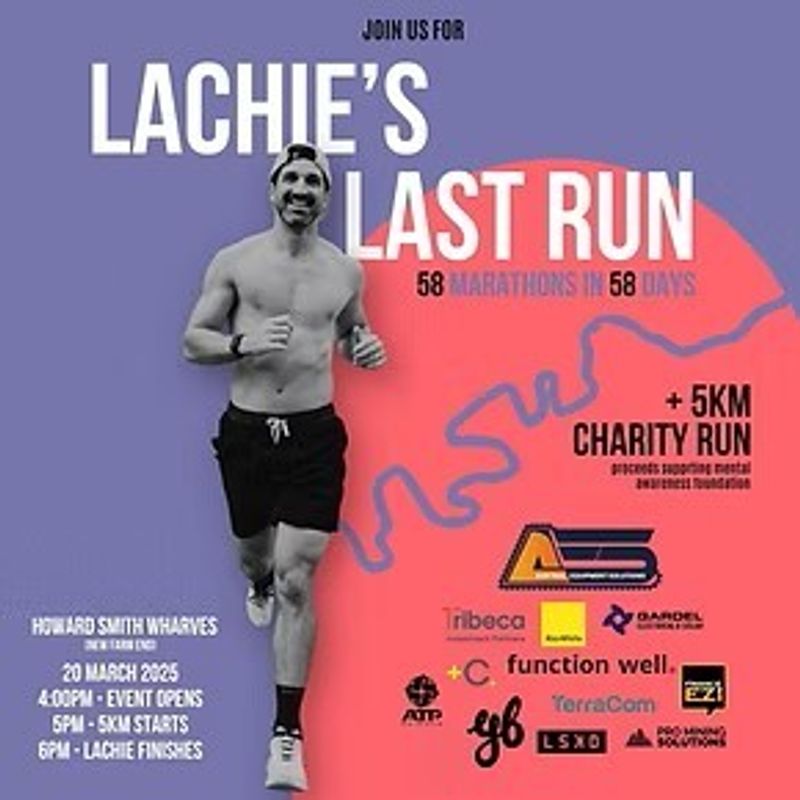
Why did you choose the Mental Health Foundation? I’d already started The Man That Can Project in 2017 when I met the founder of MHF, so I knew what they were all about. I also know where the money goes, and that’s important to me. The work they do has helped people I know personally. That’s why I’ve stayed aligned with them - they make a real impact.
What’s your advice to people who are struggling? It’s normal to go through a season where you don’t feel worthy or valuable. But find one thing you can do to start feeling worthy again. Minimise distractions and focus on that one thing. It’s all about small steps, then progress starts to happen.
What’s next? That’s the big question. First, I’ll spend time with my wife and continue the work I’m doing. There’s still so much more to be done in the mental health space to help people live better lives. As for running, the next big one will be in about twelve months. I’m aiming to beat the record for running across Australia which is currently 39 days.
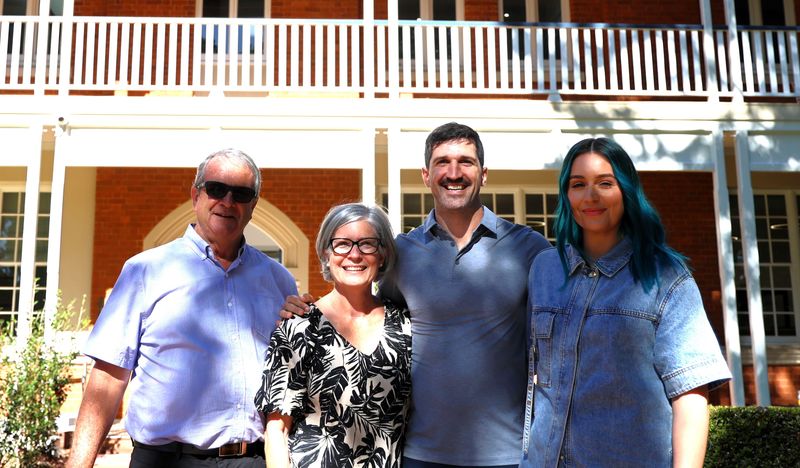
Latest Blog
TGS Success in GPS Sport
In 2023, Toowoomba Grammar School witnessed a remarkable resurgence in several of our sports programs, marking a year of triumph and growth. Although an elusive GPS premiership did not fall our way, a number of our 1st teams competed to the final whistle in Round 9 of their respective competitions, vying for their premierships. The achievements of our boys on the field and court were nothing short of exceptional, reflecting the commitment, dedication and character development that participation…
An Exceptional Learning Experience
As a member of the Junior School Leadership Team at Toowoomba Grammar School, my role involves ensuring that the Junior School’s Teaching and Learning programs are designed, implemented and managed effectively. This role is grounded in the vision, mission, and values of TGS and is crucial in supporting the Head of Junior School and the Director of Studies in providing an exceptional learning experience for our boys. At TGS Junior School, we prioritise the use of explicit teaching to ensure that…
An Inclusive Education
Toowoomba Grammar School is proud to introduce the newest addition to our education team, Amanda Gibson. Amanda commenced in Term 4, 2023 in the pivotal role of Head of Diverse Learners and will bring new direction and focus to the position in alignment with our commitment to inclusive education, aligning seamlessly with our Strategic Plan 2022-2026 and the Inclusive Education Policy. “I am very excited about developing this role,” said Amanda. “I have a passion for fostering environments where…
Get Involved in Everything
As Senior Prefect at Toowoomba Grammar School, I have had the opportunity to witness the benefits of being an all-rounder firsthand. With the various activities and programs the School offers, the ability to be involved in as many things as possible is not only enjoyable but brings about numerous benefits that extend far beyond the school years. Ranging from sports to drama and debating, participating in anything the School has to offer is an excellent way to make friends and build networks of…
The Importance of Knowledge
For as long as I can remember, I’ve always enjoyed traveling great distances. As a child growing up in rural New South Wales, this was inevitable. The region was speckled with towns, some more vibrant than others, and diverse landscapes where hillside ruins whispered tales of bygone eras. Over time, these landscapes and towns transformed into familiar scenes, with even minor changes in the community and environment growing more noticeable during each visit. Education parallels this journey, as…
Senior TGS Students' Advice for Starting Senior School
Starting at a new school can be a time of mixed feelings – very exciting, but also quite daunting and challenging. Here are some tips from some Year 7 Grammar boys who started Senior School in 2023. Get involved in different sports and activities Toowoomba Grammar School provides many sports and activities that any student can participate in. As a current Year 7 student, I highly recommend trying out as many different sports and activities as you can. Throughout my first year in high school, I…
Transition to Senior School at TGS
Starting at a new school can be a time of mixed feelings – very exciting, but also quite daunting and challenging. Irrespective of whether your son is joining us from the TGS Junior School, or if they are just starting at Toowoomba Grammar School, this is the start of a long and special journey. Your son will have a lot to digest with a new, possibly larger campus to navigate, different teachers and lessons, making new friends, where to go and what to do at morning tea and lunch. There can be a…
The Transition to Year 7 - from a Parent and Staff Member's Perspective
Regardless of your history with the school, you are all equally welcome here and should feel comfortable in knowing that we value every family and their son’s contribution to our School. Toowoomba Grammar School was built by the community, for the community and it is a School that I am immensely proud of. In 2025 we will celebrate our sesquicentenary or Grammar 150 and your sons will play a vital role in those celebrations. Our pedagogy is modelled on explicit instruction which has its roots in…
Boarding Families - Surviving Homesickness
Homesickness can be brutal for both the child and their parents. As a parent it can feel like your heart is being ripped out in some cases daily. It is extremely hard hearing how sad your boy may sound on the phone, and then you are left reeling for 24hrs until the next call, you are often left worried that they are feeling like this ALL DAY. Rest assured only vary rare cases are that bad, they usually improve as they settle in, and it is temporary. The reality is that most boys tend to save…